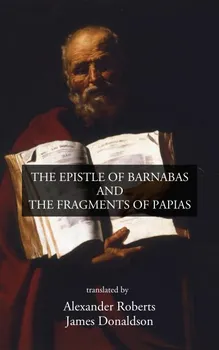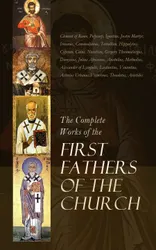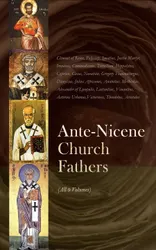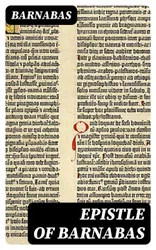[a.d. 100.] The writer of this Epistle is supposed to have been an Alexandrian Jew of the times of Trajan and Hadrian. He was a layman; but possibly he bore the name of “Barnabas,” and so has been confounded with his holy and apostolic name-sire. It is more probable that the Epistle, being anonymous, was attributed to St. Barnabas, by those who supposed that apostle to be the author of the Epistle to the Hebrews, and who discovered similarities in the plan and purpose of the two works. It is with great reluctance that I yield to modern scholars, in dismissing the ingenious and temperate argument of Archbishop Wake for the apostolic origin of this treatise. The learned Lardner shares his convictions; and the very interesting and ingenious views of Jones never appeared to me satisfactory, weighed with preponderating arguments, on the other side.
The Maccabæan spirit of the Jews never burned more furiously than after the destruction of Jerusalem, and while it was kindling the conflagration that broke out under Barchochebas, and blazed so terribly in the insurrection against Hadrian. It is not credible that the Jewish Christians at Alexandria and elsewhere were able to emancipate themselves from their national spirit; and accordingly the old Judaizing, which St. Paul had anathematized and confuted, would assert itself again. If such was the occasion of this Epistle, as I venture to suppose, a higher character must be ascribed to it than could otherwise be claimed. This accounts, also, for the degree of favour with which it was accepted by the primitive faithful.
It is interesting as a specimen of their conflicts with a persistent Judaism which St. Paul had defeated and anathematized, but which was ever cropping out among believers originally of the Hebrews. Their own habits of allegorizing, and their Oriental tastes, must be borne in mind, if we are readily disgusted with our author’s fancies and refinements. St. Paul himself pays a practical tribute to their modes of thought, in his Epistle to the Galatians 4:24. This is the ad hominem form of rhetoric, familiar to all speakers, which laid even the apostle open to the slander of enemies (2 Cor. 12:16),—that he was “crafty,” and caught men with guile. It is interesting to note the more Occidental spirit of Cyprian, as compared with our author, when he also contends with Judaism. Doubtless we have in the pseudo-Barnabas something of that æconomy which is always capable of abuse, and which was destined too soon to overleap the bounds of its moral limitations.
It is to be observed that this writer sometimes speaks as a Gentile, a fact which some have found it difficult to account for, on the supposition that he was a Hebrew, if not a Levite as well. But so, also, St. Paul sometimes speaks as a Roman, and sometimes as a Jew; and, owing to the mixed character of the early Church, he writes to the Romans (4:1) as if they were all Israelites, and again to the same Church (Rom. 11:13) as if they were all Gentiles. So this writer sometimes identifies himself with Jewish thought as a son of Abraham, and again speaks from the Christian position as if he were a Gentile, thus identifying himself with the catholicity of the Church.



